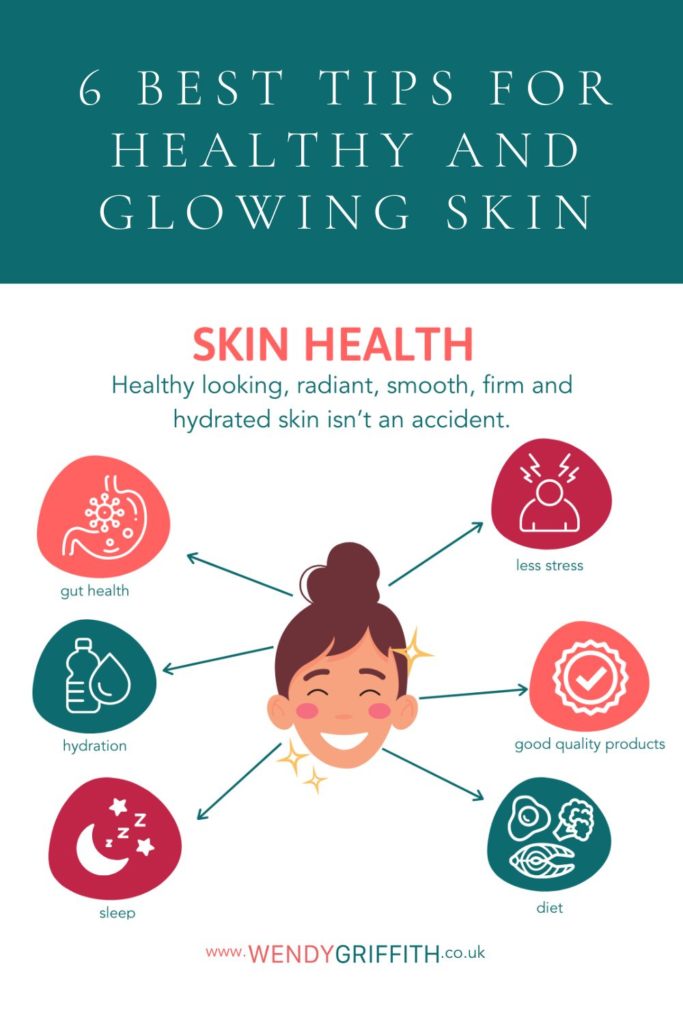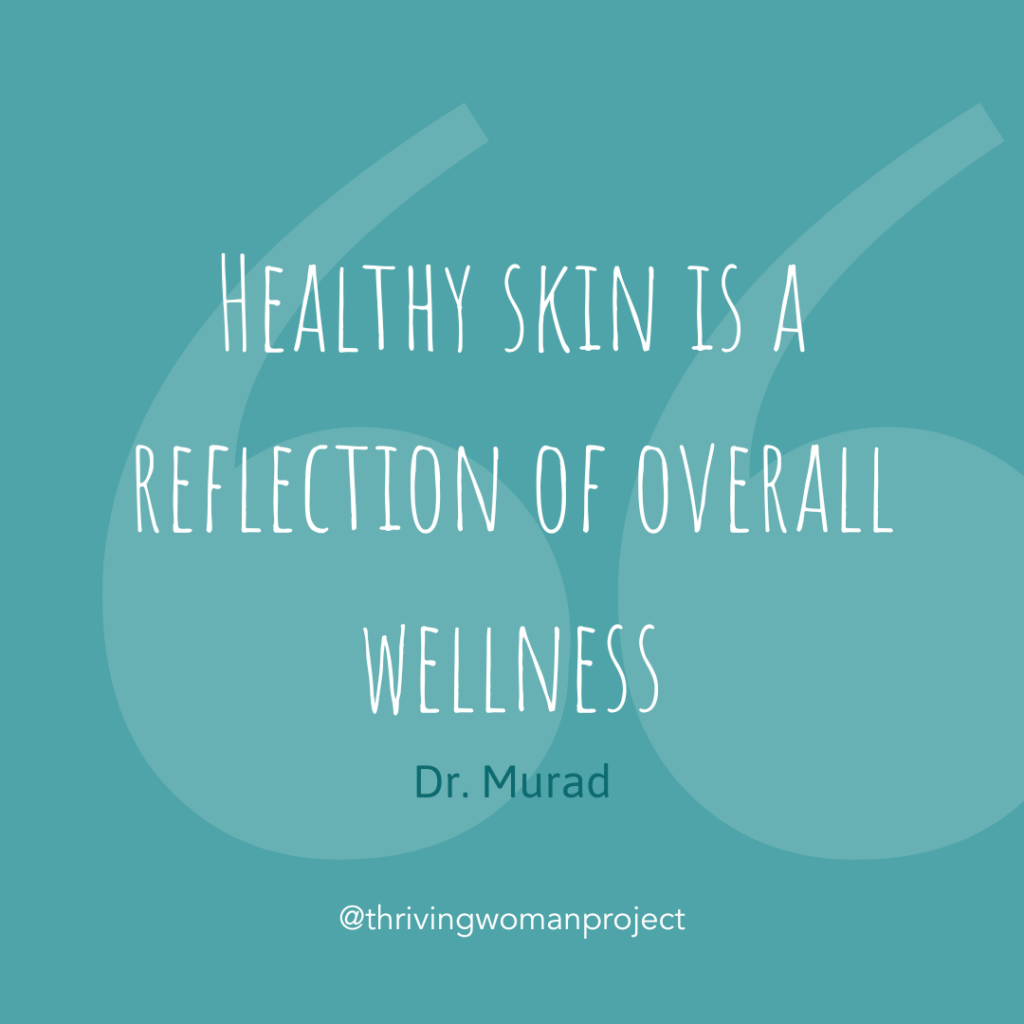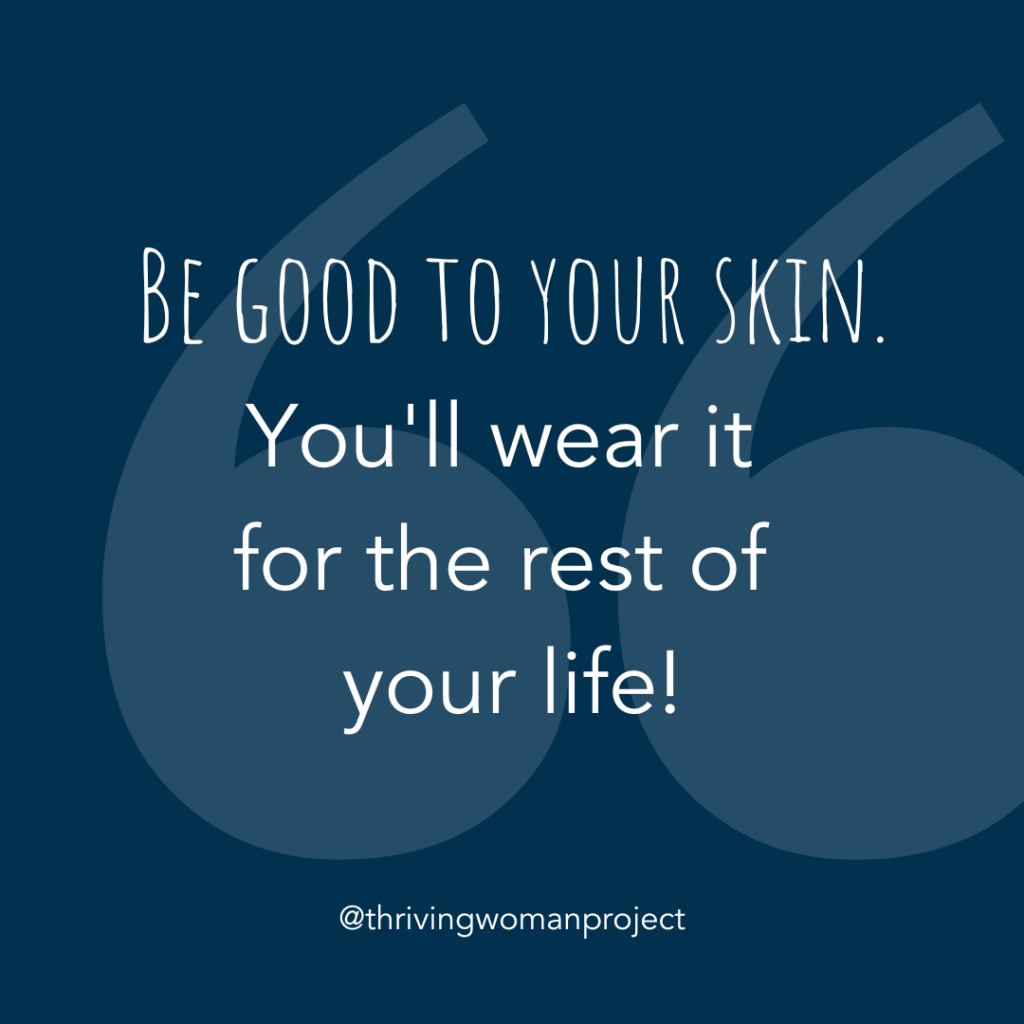No matter what our age, we all want smooth, soft skin that looks radiant and healthy.
As someone who has really struggled with their skin from acne (and scarring) in my teens, to blemish-prone and oily skin in my 20s, I do understand how frustrating it is to be unhappy and self-conscious in your skin.
The reality is, our skin is ageing every day. Before we dive into the things we need to do to be able to get that desired glow, let’s look at how skin behaves as it ages.
Here’s what happens at different stages:
- Mid-20s: cell turnover begins to slow, baby lines begin to form, premature ageing (uneven skin tone, freckling).
- 30s: collagen and elastin production slows, fine lines & wrinkles around eyes and forehead start to appear, skin loses resilience and radiance.
NOTE: Skincare in your 20s to early 30s may still be focused on combatting blemish breakouts or minimising the appearance of blemish hyperpigmentation or scarring. More importantly, this is the time to get a proactive jump on premature skin ageing by adopting healthy skincare and eating habits.
- 40s: cell turnover hits a sluggish point, collagen and elastin continue to decline, skin is drier, thinner, rougher, surfacing of dark spots, fine lines and wrinkles.
- 50s: low collagen and elastin = thinner skin, deep wrinkles and sagging, dry, rough skin.
FACT: You can have a positive impact on your skin no matter WHAT AGE you are or how well you have cared for it until now.
Healthy-looking, radiant, smooth, firm and hydrated skin isn’t an accident – it’s a result of understanding your skin type and creating a skincare and nutrition regime to meet your needs.

I have been guilty of trying all the “quick fixes” and lotions and potions out there.
There is a lot about a lot online.
I think you will probably agree.
There’s always a new celebrity influencer telling you about the latest “miracle product” that has the blood of a dragon’s tail in it and suddenly you’ll have perfect skin.
It can be really overwhelming and time-consuming trying to figure it all out.
Sometimes you’re just looking for the basics … the core things you need, especially when it comes to skin and nutrition.
Here are 6 things I’ve learned on my skin health journey:
1. Gut Health:
This is everything in my opinion. It’s what I didn’t understand … 90% of your serotonin (happy hormone) is made in your gut. A lot of skin problems and issues can be hormonal because whatever is going on in the gut is going to be manifesting on the skin.
Gut health is influenced by a number of things and it has an impact on multiple aspects of our life including our:
- Energy,
- Digestion,
- Mental health,
- Weight management, and
- Skin health.
Good gut health will help balance hormones, leading to a long-lasting and glowing complexion.
Here’s something I do every single day to make sure I’ve got this covered:
2. Diet
Eat healthy because your diet influences the health of your skin in both the short and the long term. For instance, studies show that diets that are high in sugar can make the skin look older. In contrast, diets rich in healthy omega-3 fats can protect against sun damage and even acne.
Also, avoid cigarettes and limit alcohol, which are highly damaging. Both can dehydrate the skin and interfere with its ability to utilise nutrients in your diet.
Food beneficial for skin health:
- Fatty fish, such as salmon, mackerel, and herring, are excellent foods for healthy skin,
- Avocados are high in healthy fats,
- Walnuts,
- Sunflower seeds,
- Sweet potatoes,
- Red or yellow bell peppers,
- Broccoli,
- Tomatoes.
You might want to check out 5 simple breakfast ideas for busy mums and 6 simple lunches for busy mums to get started.
3. Sleep
Now I’m not going to tell you to get 8 hours a night – if you’re anything like me, you’d love to get a solid 8 hours every night! It doesn’t always happen like that …
But what I focus on is good-quality sleep, which is vital for skin health. A chronic lack of good-quality sleep can age skin by as much as 10 years. It is the miracle for everything – and now more than ever we are sleep deprived. I have definitely noticed this since becoming a mum and having more distrubed sleep.
So something to bear in mind is that we also need to maintain good sleep hygiene which essentially means having good habits to do with the bedroom environment and sleep. Here are some things that researchers have found to help:
- Fresh-smelling sheets – the majority of people have said that this makes them want to go to bed,
- A comfortable mattress as it’s a prerequisite for good sleep,
- 75 minutes of high-intensity exercise reduces the levels of daytime sleepiness.
More on this topic here: Get more sleep as a busy mum: 6 helpful ways. Or if you’re a fan of listening to podcasts then How to end consistent sleep deprivation is the one for you.

4. Stress
84% of the world identifies with stress (and that was before the pandemic crisis).
Stress is so aggravating on gut health. I’m not just going to tell you to be less stressed, because when has that ever worked for anyone who has been stressed?
What I’ve found has helped me reduce stress (which has such a negative effect on our health, but also on our skin) is to engage in things that absorb me into another world – things like reading, painting old furniture, or working in my veggie garden.
5. Hydrate
Our body is nearly 70% water – and our cells (of which there are billions in our body) need water to thrive or they shrivel up and don’t function well. Drink at least 2 litres of water a day to make a big difference to the radiance and moisture of your skin.
I personally drink 3-4 litres a day easily. It’s a habit – I go everywhere with my water bottle in tow.
You can opt for getting water from food or other beverages, but drinking plain old water gives you the benefit of not consuming sugars alongside.

6. Good quality skincare products
I personally will only use brands that are of incredibly high transparency around their ingredients – with no mineral oils or petroleum in them. You’ll be shocked how many high street brands have this as their main ingredient, and it stops your skin from being able to breathe!
I also look for products with high levels of Vitamin C, hyaluronic acid, botanical retinoids and AHA’s (alpha hydroxy acids – which are water-soluble acids made from sugary fruits).
Specifically, you want to have products with:
Vitamin C
- helps support natural collagen, brightens the skin, and is a potent antioxidant.
- has to be a stable form. What you have on the label isn’t always what actually gets delivered to your skin.
Retinol / Bakuchiol
- Retinol helps rejuvenate your skin by stimulating natural collagen production. It also speeds up skin cell turnover to reveal newer, brighter skin. It’s an ingredient that helps make your skin glow and reveals skin that is visibly younger-looking. Retinol also delivers visible improvements in dark spots, pores and wrinkles
- But retinol does come with potential side effects – redness, peeling, photosensitivity, and may not be suitable for all skin types
- Clinically tested in double-blinded controlled trials to be just as effective as retinol, minus the harsh side effects. Most people know, that retinol is one of the key ingredients that any dermatologist will explain is a key skincare ingredient for incredible results with your skin – the downside of retinol, though, is that it often causes dryness, irritation, sensitivity to light, or cannot be tolerated very well by sensitive skin. Bakuchiol is a new revolutionary ingredient that gives you the same results as retinol, but is much better tolerated!
The rest is extra! You may need extra if you have specific skin concerns, eg salicylic acid if have acne-prone skin, hyaluronic acid or another good hydrator if have dry skin, a weekly exfoliator or clay mask if particularly dull skin, caffeine in your eye cream if you have dark circles or puffiness… But if you start with these three, you will have a good base to work with.
My personal go-to which combines all these skincare “must haves” for me is the DermResults 3-Step Starter Regimen from Arbonne* as it empowers glowing skin.
SPF
- 80-90% of extrinsic ageing is caused by UV exposure, and more recent evidence is showing that blue light from our devices too is contributing to ageing effects on the skin
- Wear EVERY DAY even when sitting in the house, as the light from our screens can cause damage too.
- There are two main types of SPF – mineral and chemical. I won’t go into the differences too much here, but I use a mineral sunscreen, as it sits on top of the skin’s surface as opposed to the sun’s UV rays being absorbed by the skin (as with a chemical sunscreen).
I personally endorse Arbonne – I have been using this brand for over 10 years now and the results in my skin have been tremendous. From someone who struggled with acne, blemishes and oily skin to someone who is happy to go make-up-free now.
*As an Independent Consultant for Arbonne International (consultant ID: 441035483), I love to recommend the products I personally use to my community. I have been using Arbonne’s range of vegan, no nasties, nutrition, skincare and make up products for over a decade. Arbonne is a B Certified Corporation and adheres to the highest standards of sustainability and ingredient transparency. For more info on this – click here.